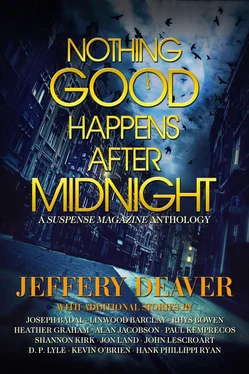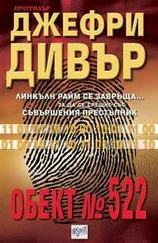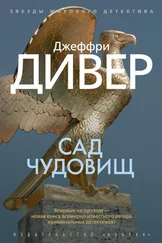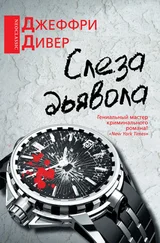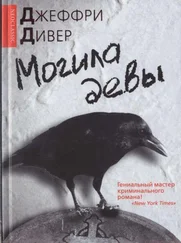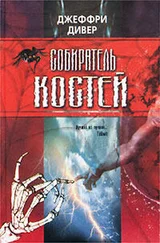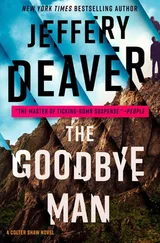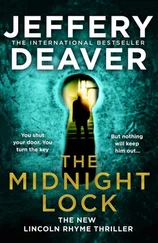She knew only one thing.
Never again. She would never, ever be in that cemetery again after midnight.
Because she knew now that, curse or no, nothing good happened there after midnight.
No, nothing good happened after midnight. Even in a garden of death.
The Sixth Decoy
Paul Kemprecos
Elmer Crowell had a sharp eye and a sharper blade. He could take a block of wood and cut away everything that didn’t look like a bird, creating a masterpiece that looked as if it could quack, waddle or take flight. Some people say he was the best bird carver in the world.
Ol’ Elmer was an authentic American genius, no doubt about it. He was also a humble man from what I’ve heard. He would have dropped his whittling knife if someone told him the carvings he turned out in his ramshackle shed would bring millions of dollars at auction. And his gentle soul would have been burdened if he knew the desire to possess the things of beauty that sprang from his mind and his hands could lead to bloodshed.
Crowell had been dead more than a half century before the golden, late fall day when I crossed paths with his ghost.
I had spent the morning scrubbing down the deck and cleaning out the galley of my charter fishing boat Thalassa . The rods and reels were stowed in the back of my pickup truck. I’d scheduled a forklift to raise the boat out of the water and lower it onto a wooden cradle to be tucked under a plastic blanket for a long winter’s nap.
The fishing season had been as good as it gets. Nantucket Sound teemed with schools of hungry striped bass, and every one of them had a death wish. The skies were sunny, the seas gentle and the tips generous.
Hooking fish wasn’t something I thought I’d be doing for a living, but as the ancient poet Homer once said, our destiny lies on the knees of the gods.
The Immortal in charge of my fate must have had restless leg syndrome, because I fell off his knee, cutting short my college education in philosophy for a lesson in life, and death, paid for by the U.S. Government in Vietnam.
After mustering out of the Marines, I became a cop and worked my way up to detective in the Boston Police Department. I was engaged to be married to a beautiful and intelligent woman whose only blemish was her judgment in men.
I might have weathered a corruption scandal at the BPD if I kept true to the code of silence, but I lost my will when my fiancé died in a car accident.
After the funeral I got in my car and headed south from Boston with a bottle of vodka, driving until the road ended at a deserted Cape Cod beach. After a few slugs from the bottle, I fell asleep in the lee of a dune. I woke up to the cries of hovering gulls and the rustle of breaking waves. I staggered off the beach and was sobering up in a coffee shop when I met an old fisherman named Sam. He was looking for a crewman. I said I might be interested in the job.
Either Sam had been desperate, or he’d seen the desperation in my face, because he simply nodded and said, “Finestkind, Cap.”
Fishing was tough, but cheaper than stretching out on a headshrinker’s couch. More effective, too. Rolling out of bed at three in the morning to catch the tide, commuting twenty miles into the Atlantic Ocean and working a twelve-hour day forces your mind to ignore the little demons of regret tap-dancing in a corner of your brain.
The wind, and sun reflecting off the glassy sea had burned most of the sadness from my face and darkened my skin, hiding the lines of bitterness lurking at the corners of my mouth, even though they were still there. Sam accused me of going native when I went for the pirate look, with a gold earring, and a droopy mustache that decorated my upper lip.
More often than not my mouth was set in a grin as Sam gossiped about townspeople, fish, and the cooking prowess of his wife Mildred. When Sam retired I took over his boat, but couldn’t cut it on my own. I cleaned up my act, mostly, and bought a charter fishing boat with a loan from my family.
Every day was an adventure. I had to make sure my clients didn’t fall overboard or hook themselves instead of a fish — a state of alertness that had called for a higher degree of sobriety than I was used to. I’d been busy from sunup to sundown, subsisting on Mountain Dew and peanut butter and jelly sandwiches.
In the off-season I’ll earn a few bucks with an occasional commercial diving job. There’s not much demand to go underwater during the winter. I’ve held onto the private detective license I got after leaving the Boston PD, but there’s even less call for a PI.
With my boat coming out of the water, and no jobs in the works, money would soon be tight. I set a course across the marina parking lot for a waterfront bistro named Trader Ed’s. I was thinking that a frosty beer might help me come up with an idea how to keep the boat loan payments to my family flowing during the lean months. I was about halfway to my bar stool when a silver Mercedes convertible pulled up beside me and braked to a stop. A woman wearing a dark gray pinstripe suit got out from behind the steering wheel.
“Excuse me,” she said. “I’m looking for a boat captain named Aristotle Socarides. The harbor master pointed you out.”
“That’s me,” I said. “How can I help you?”
“I’d like to retain your services.”
“Sorry,” I said, shaking my head. “I’m done fishing for the year. My boat will be out of the water in the next day or so.”
“That’s not a problem.” She removed her sunglasses to reveal coral-colored eyes under arching brows. “My name is Bridget Callahan. I’m an attorney. I know that you’re a retired police officer and that in addition to running a charter boat, you sometimes take on cases as a private detective.”
“Word gets around.”
“Thanks to modern communications technology.”
She held up a cellphone. On the small screen was the face I see in the mirror during the morning shave. The earring and mustache of my pirate days were gone. I was now a serious businessman. The photo of me at the wheel of the Thalassa was from the business section of the Cape Cod Times . The headline was: “Former Cop, Charter Captain Moonlights as Private Eye.”
“I mentioned the private eye thing to the reporter as an aside,” I said. “I don’t have a lot of clients.”
“All the better. You’ll have time to take a case for a client of mine.”
“Depends, Ms. Callahan. I don’t do divorce investigations. They’re too dangerous.”
“Nothing like that. My client would like to recover some valuable property.”
She tucked the phone in her pocketbook and handed me a business card. The words embossed on the card in gold told me that Bridget Callahan was a partner in a Boston law firm that had more ethnic names than the United Nations.
“Big legal powerhouse, as I recall,” I said. “Making partner couldn’t have been easy.”
“It wasn’t. It took talent, hard work and a willingness to deal with difficult clients.”
“Congratulations. Does this case involve one of those difficult clients?”
She nodded.
“Why come to me? My last big case had to do with oyster poachers. Your firm must have staff investigators.”
“We do. One of them gave us your name. He said you’d be perfect for this job. That you take unusual cases.”
She mentioned a retired detective I knew from the BPD.
“He’s a good cop,” I said. “What makes this so unusual he can’t handle it?”
“The client is a bit eccentric.”
“In what way?”
“He’s a collector,” she said, as if that explained everything.
“Does this eccentric collector have a name?”
“His name is Merriwhether Ruskin the 3rd. He wants to meet you.”
Читать дальше
